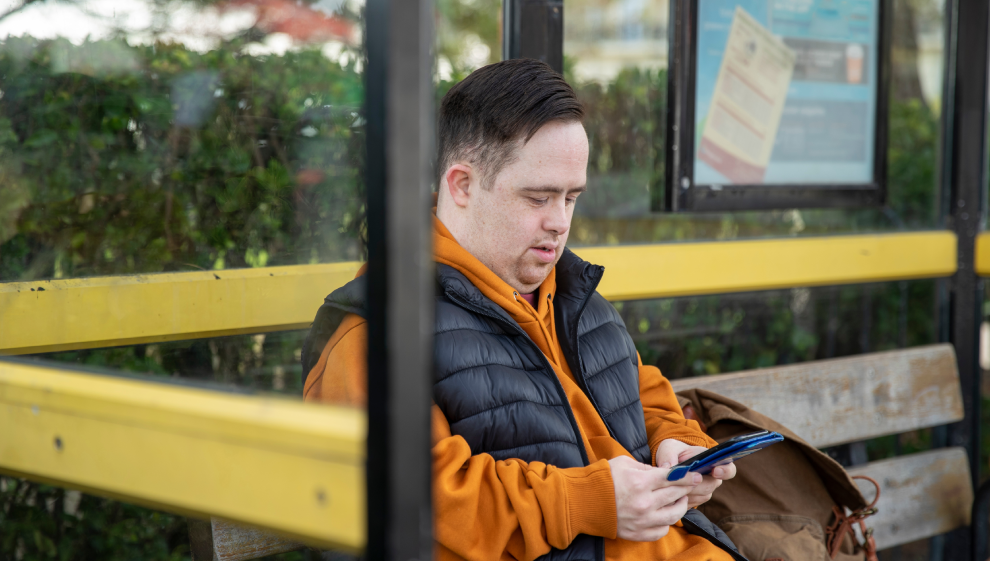How social media can affect your mental health
So why does this happen, and what can we do about it? Find out how time out from social media and reevaluating your relationship with technology can ultimately improve your mental health and lead to relationships that feel more fulfilling and genuine.
1. Cyberbullying and online harassment

People are comfortable sending abusive messages on social media because they feel protected by their online anonymity.
The overwhelmingly majority of people who 'troll' and harass other people on the internet wouldn’t do the same in a face-to-face setting.
The unfortunate reality is that their behaviour can cause victims to experience intense emotional distress, anxiety, depression, and even suicidal thoughts.
To help you learn more about cyberbullying and what this content might look like, we’ve put together a list of things to look out for below:
- Could someone be offended by this content?
- If I was the butt of the joke, would I still laugh?
- If I heard this said in real life, would I think it was funny?
- Should I think about reporting this offensive comment?
- How would I react if this unwanted attention was directed at me?
- Would I teach my child that this behaviour is okay?
- Do I really think these memes are funny?
- Does the recipient look like they’d welcome this type of attention?
2. A fear of missing out (FOMO)
FOMO stands for ‘fear of missing out’.
It’s common on social media platforms because other people make their day-to-day life and plans visible for everyone to see which can foster feelings of jealousy in others.
These feelings are nothing new, but in the past, a lack of constant connectivity meant we couldn’t share our plans with others at the touch of a button. In the modern digital world, many of us spend more time seeing our friends online than in the real world.
The effect of FOMO is that we convince ourselves that there is always something better going on. The idea that we’re missing out on something that’s ‘better’ or more worthwhile can cause us to resent our situation and embed thoughts of loneliness and social isolation.
Avoid 'compare and despair' thinking
Remember that people who share their lives on social media typically only post about the most entertaining moments. The reality is far from what you see online.
Even those people who appear to have engaging and exciting lives experience human emotions like loneliness, sadness, and a desire for more than they currently have.
If you regularly feel this way, try to limit your time on social media, especially when you’re at an event, doing something you enjoy, or spending time with friends. Instead, focus on how much fun you’re having and limit your exposure to triggers that have the potential to distract and invite comparison.
3. Filters and unrealistic expectations
Filters and apps that edit photographs can warp and distort our view of what’s achievable and realistic.
As technology continues to improve, it is becoming harder and harder to spot what’s real and what’s edited. Everything from the smoothness of our skin to the shape of our body can be adjusted to create unattainable and unrealistic standards of beauty.
Heavily edited pictures and videos can make us think our own appearance or body shape is less than or inadequate. Constant exposure to modified images can even decrease self-esteem and lead to the development of serious conditions like body dysmorphia as individuals start to believe that their natural appearance is in some way inferior to what they see online.
Comparing yourself to a fake standard of beauty is damaging, especially for younger users who are still developing a sense of self.
To help combat this, we can all do more to start conversations about filtered images and how they don’t reflect or represent real life. They are a manufactured version of reality that’s often geared toward selling products to you or boosting clicks and engagement on social media.
4. Feeling constantly connected
The idea that we can contact anyone, at any time using the device in our pocket can be a great thing, but it can also create pressure and leave us feeling lonely and tired.
Some common ways we feel this pressure are:
- Feeling the need to ‘keep up’ with what’s going on
- Not wanting to disengage from the news
- Acknowledging messages we receive with ‘reacts’
- A fear of missing out
- Maintaining all our connections and friendships online
- Feeling bad for potentially ignoring the messages of a loved one or friend
Constantly being online in some capacity can feel like being bombarded with a continuous stream of information and updates. This can get overwhelming and make it difficult to unplug and disconnect.
What can we do to limit our smartphone use?
Studies have shown that taking regular breaks from social media and digital devices can significantly improve our mental health, reduce stress levels, and enhance our overall mental well-being.
A good place to start is to set boundaries and try your best to stick to them. Some people like to engage in a tech detox that limits their smartphone usage as they recharge and relax away from the pressure and temptation of digital devices.
Others find that taking time out from apps they overuse is a good way to evaluate their relationship with social media and how they interact online.
5. Distraction as a coping strategy
Many of us turn to social media as a distraction from stress, anxiety, and other negative emotions that we might not want to deal with right now. This can provide temporary relief, but it often means we put off addressing the underlying cause of our emotions.
Over-reliance on social media as a way of distracting ourselves can lead to a cycle of avoidance, where problems are routinely ignored because we would rather distract ourselves and seek immediate pleasure elsewhere.
The reason we turn to social media is because it gives us an instant payoff. Unlike exercise, where we have to work for our gratification, social media gives it to us on a plate. Scrolling endlessly, watching videos we find comforting, and sharing in the collective emotion of a wider audience can all make us feel good right now, but if we’re using these mechanisms to avoid taking responsibility for bigger, more important issues, things can get problematic.
Instead, keep some time to enjoy yourself online, but sprinkle in some time for some of the following techniques and practices. You might be surprised how they make you view your relationship with social media:
- Mindfulness
- Exercise
- Speaking with a loved one about how you’re feeling
- Therapy
- Spending time with friends
- Walking outdoors
- Taking a short nap
- Meditation
- Cooking a healthy meal
- Writing or journaling
6. Less focus on our ‘real life’ relationships

Physical touch, spending time with others, and face-to-face conversations are all part of being human.
Since the mass adoption of smartphones and social media, connecting with other people has never been easier.
The somewhat superficial feel of online relationships can also lead to isolation and loneliness, even when we're surrounded by notifications, messages, and alerts from people we know and love.
Social media and other digital tools that allow us to reach others from anywhere in the world are great for maintaining contact when we’re apart, but ultimately there is no substitute for face-to-face time with loved ones.
Last updated Wednesday 30 October 2024
First published on Wednesday 30 October 2024

